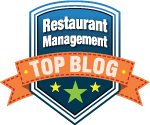In an era when terms like Data Scientist, and Analyst are commonly used in mass media, it is important to understand that interpreting data can be complicated. It is easy to draw the wrong conclusion. I touched on this point in my material for Restaurant Finance Week last November. You should take caution when measuring your restaurant performance during this Covid period. Read on to see why what you see may not be what's happening and how a poor analysis can lead you to the wrong conclusion.
Topics: Restaurant Custom Reporting, Restaurant Performance, Performance
Increasing Your Awareness
Restaurant companies carefully seek out the smartest ways to manage their everyday operations. Each system they employ (POS, Labor Scheduling, Inventory, Food Cost, Guest Loyalty, Payroll, GL) probably does a decent job of capturing and recording all transactional information and provides some sort of static reporting.
However, these systems are unable to “talk to each other”. In order to try to get greater clarity, many operators must resort to merging all the data from all of these systems into excel spreadsheets. This method is not only often unreliable but extremely time consuming and tedious.
Topics: Restaurant Custom Reporting
Executives and managers in the restaurant industry are extremely busy. They have very little time to open multiple reports in various systems to see how they are doing. Dashboards let them know how things are going with a quick glance.
Learn the basics of setting up restaurant dashboards to improve your business.
Topics: Restaurant Custom Reporting
This year we are pleased to be hosting the Mirus User Conference in our home town of Houston, and Everyone is invited! This conference is the best way to see how Mirus provides a powerful advantage to our clients for building customer satisfaction, increasing sales, and getting to the action plan quicker than is possible with spreadsheets or static reporting.
Topics: Restaurant Custom Reporting
First things first, what are the definitions of product mix and market basket analysis? What benefits do restaurant companies gain from using these two analytical methods?
Product Mix Analysis
Product mix is a tool restaurant executives use to make decisions about menu items. Product mix reports can show a restaurant’s top selling vs bottom selling items, the percentage of the overall menu, the percentage of overall sales for a day, week, month, etc. By studying these reports, restaurant executives can find new ways of reaching their customers through promotions, etc. For example, a restaurant business can learn from a product mix report that chicken sliders were top sales last month. Offering a variety of sides and drinks that pair well with the chicken sliders would be a good way to increase sales. By paying close attention to costs the restaurant business can increase their profit margins also.
Topics: Restaurant Custom Reporting
Above Store Reporting
In today’s highly competitive restaurant marketplace, restaurant companies are slowly evolving and becoming more data-centric when it comes to decision making but it’s definitely a learning process. Part of the reason is due to changes in the way many newer systems (POS, BOH, etc.), are delivering Above Store Reports (ASR) on daily activities. OK before I go further on this, let’s go back to the beginning and then fast forward back to today.
I’m not going to go all the way back to paper and fax machines but for those that remember this tedious process, I’d be remiss to ignore its existence. With the advance of the Internet and computers, paper forms and faxes were replaced with reports being made visible by logging into the POS or BOH systems. One main difference between now and then is the early systems required you to login to each location individually before you could see any reports.
Topics: Restaurant Custom Reporting
It seems like, since forever, that Product Mix or PMIX as it’s known, has been a staple in the restaurant arsenal for evaluating what’s selling and menu performance. And while, PMIX does deliver some interesting information like how many of x, y or z did I sell over a day, week, month, etc., it lacks the details needed to see shifts in demand, which makes it a poor choice to use when you’re wanting to make critical decisions about menu changes. For now, let’s look closer at what PMIX can deliver.
What makes your customers happy when visiting your restaurants and what keeps them coming back? Is it the quality and taste of the food? Polite and speedy service? Customer fulfillment, or lack of it, will ultimately affect your restaurant business in a significant way.
Restaurant executives study reports pertinent to their specific departments (Finance, Operations, Marketing, etc.) but no matter their department, there are factors that overlap amongst these departments. One major issue is customer satisfaction. There are many variables that can affect customer satisfaction and by looking at the right information, restaurant companies can utilize a way to measure the key metrics important to executing a memorable dining experience for their guests.
Topics: Restaurant Custom Reporting
Restaurant Above Store Reporting, Business Intelligence, Business Analytics - Aren’t they all the same?
Posted by Chuck
Restaurant organizations are increasingly turning to data to help manage their operations more effectively, improve marketing, drive revenues, increase profit margins, ensure competitiveness and grow their businesses. Unfortunately, today, the most widely implemented solutions aren’t Business Intelligence (BI) or Business Analytics (BA) solutions. No, today, the vast majority of restaurant companies rely on reports generated by the very systems used to operate (POS, BOH, etc.), their businesses.
Why? In my humble opinion, there’s a lot of confusion around terms being used to describe what any restaurant company may be receiving when it comes to their reporting. There’s Above Store Reporting (ASR), BI and BA to name a few. While they each provide a means to an end, that end is very different in each case.
Topics: Restaurant Data Warehouse, Restaurant Custom Reporting
How much does it cost? That’s the question that inevitably comes up whenever I’m talking with a restaurant executive about the data analytic services Mirus provides. Sometimes the timing of the question is right on; other times it’s a bit premature.
If I were selling pens or another commodity the price question wouldn’t be that big of a deal. A pen is a pen. You can touch it, you know what it does, how to use it and why you need it. Business Intelligence (BI) Software as a Service (SaaS) solutions, while not new to the restaurant industry (we’ve been around for more than 17 years), are not so straightforward. The benefits and use cases of these solutions are different depending on who you talk to.
Topics: Restaurant Data Warehouse, Restaurant Custom Reporting


















.png?width=50&height=50&name=Mirus%20Logo%20(1).png)